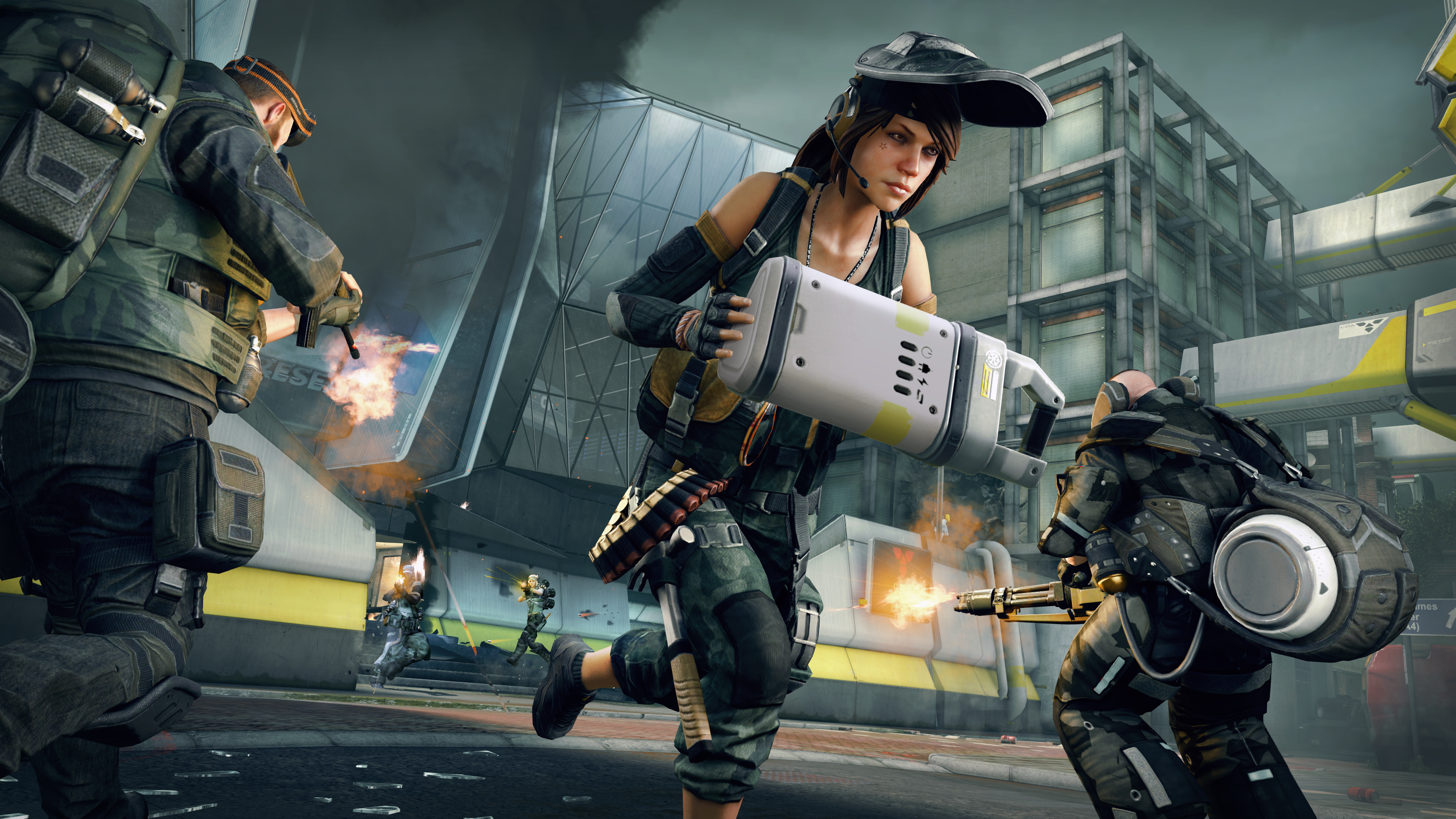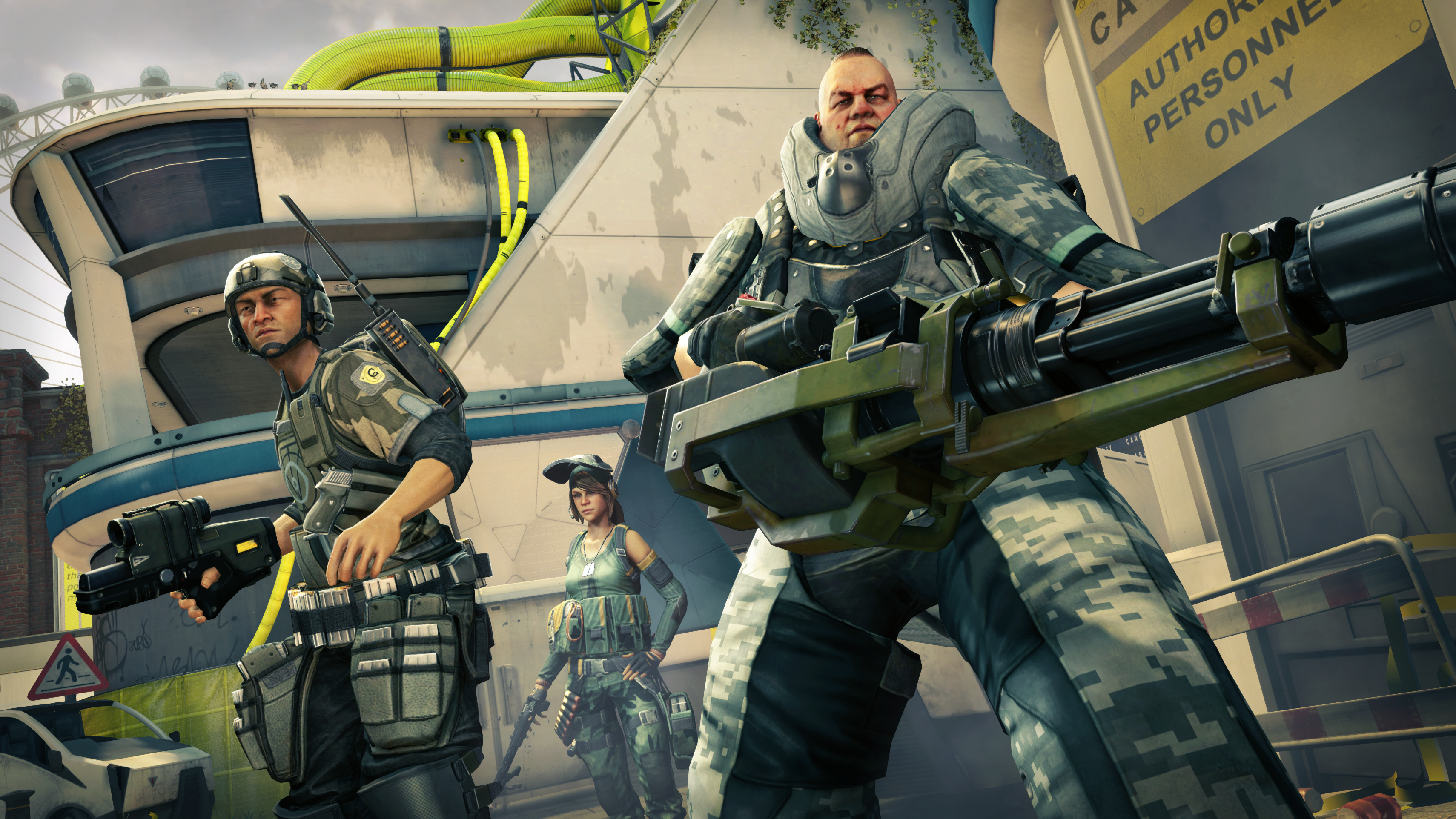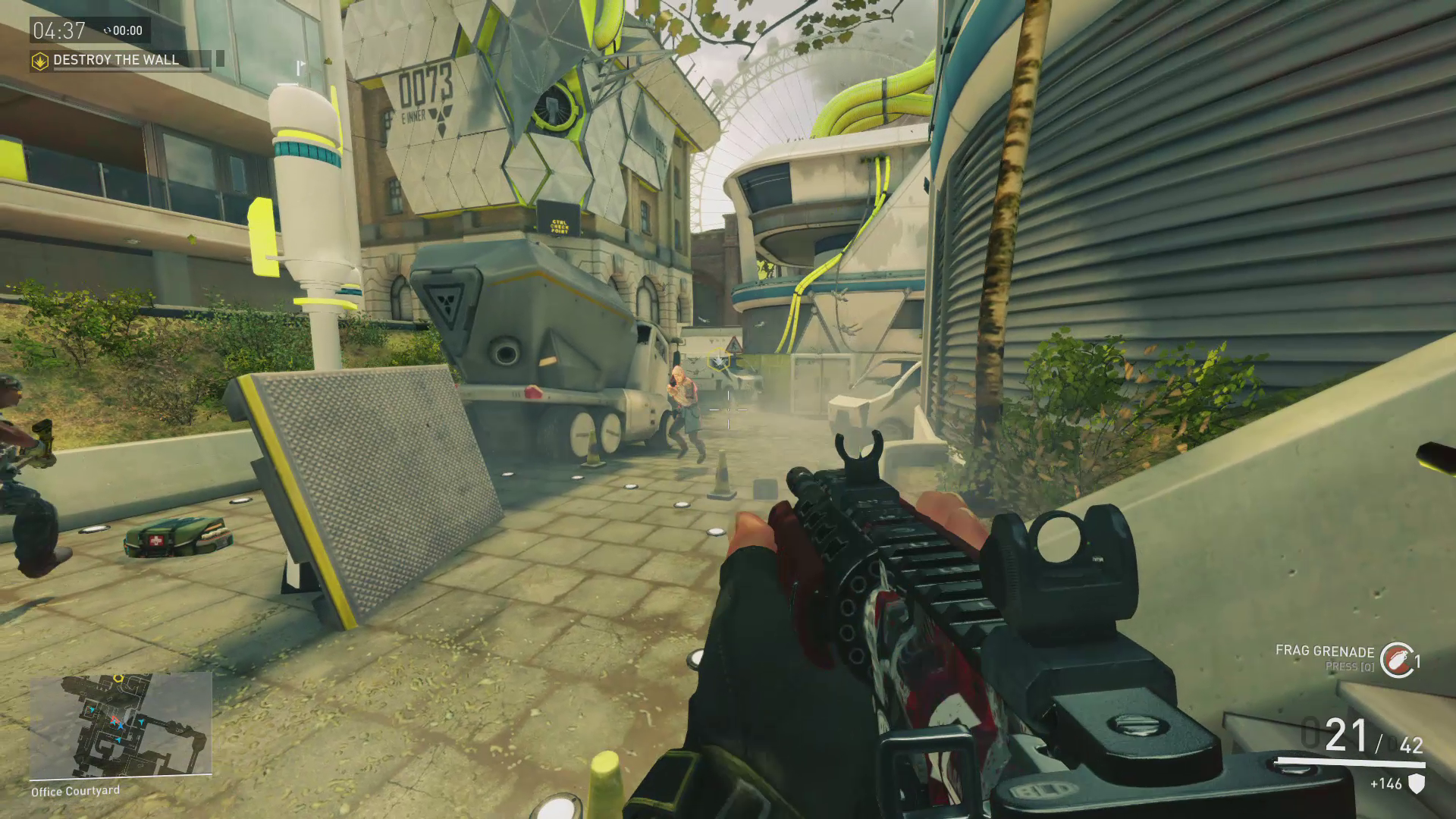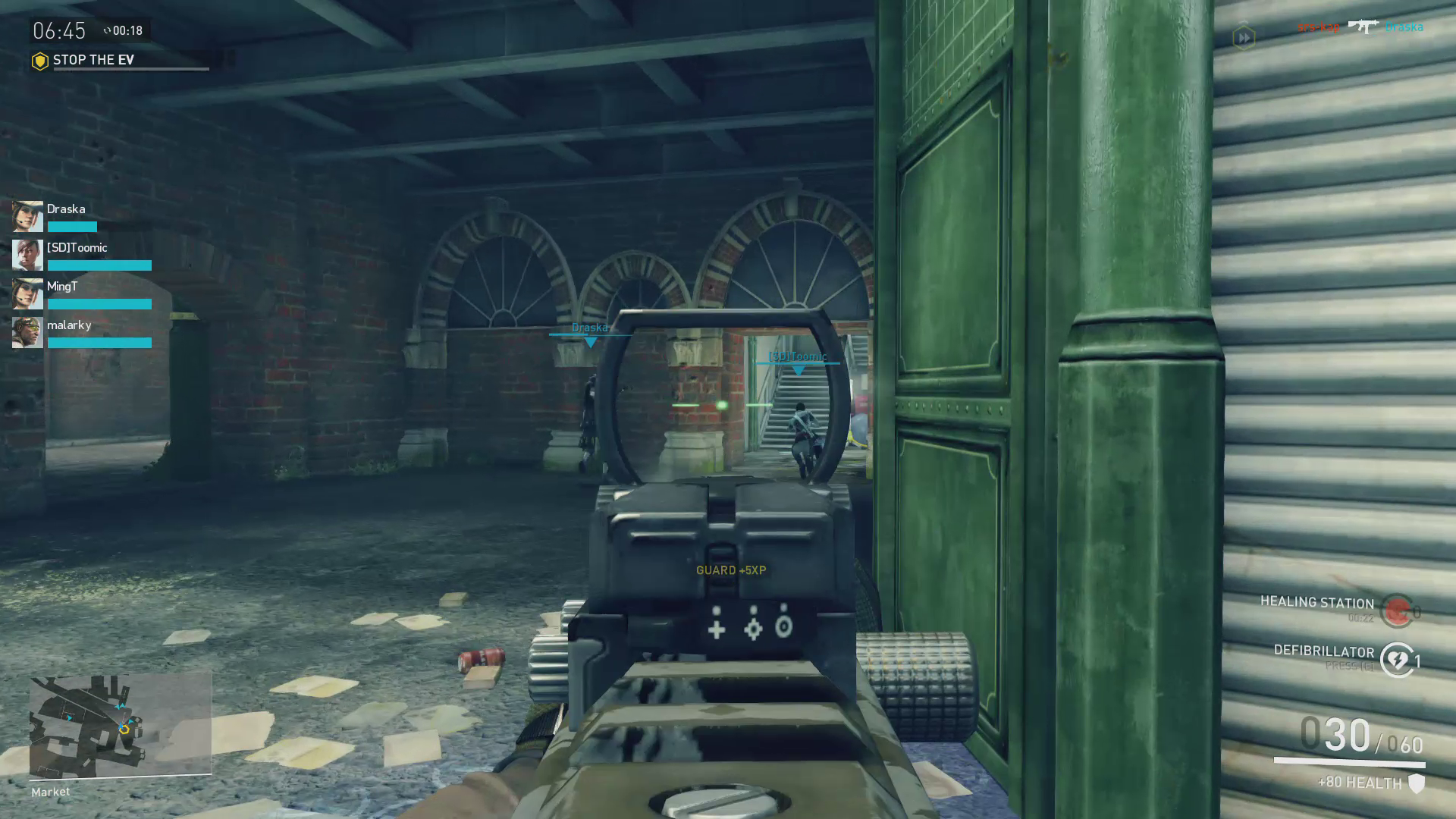Dirty Bomb nails the most important details for shooters: is that enough?

I don't necessarily need another class-based first-person shooter, but Dirty Bomb nails some fundamental things about what makes shooting fun, and it's free, so I can easily recommend trying it when it comes out.
On paper, there's very little to set Dirty Bomb apart from Call of Duty, Counter-Strike, and others. A bunch of players jump into a level with different guns, and while Dirty Bomb prides itself on its dynamic, objective-oriented modes, generally speaking I'm always doing the same things. I might be trying to plant a bomb to blow up a gate that leads me to the next objective or protecting an armored vehicle that only moves when my team is near it, but if my team and I are shooting and killing our opponents faster than they're killing us, it's safe to assume that we're winning.
Dirty Bomb is probably most like Team Fortress 2 because of the parallels between its various Mercs and Team Fortress 2's classes. With a hulking figure and huge minigun, Rhino is basically the Heavy. Nader, a silver-haired German character, doesn't look anything like Demoman, but her grenade launcher, which is best at clearing out tightly packed rooms, serves the same purpose.
Rather than switching between any class after each death, I switched between three characters I chose to bring into the match before it started.
There were 12 Mercs in the version I played, all of whom tweak the familiar tank, engineer, medic, support, and sniper roles with different weapons and perks, a submachine gun instead of a shotgun, for example.
Obviously, it'd be wise to make sure your team doesn't enter a match without a medic, engineer, or other crucial classes, but it didn't seem like different characters within the same class were different enough to result in the kind of meta strategies that go into character picking you'd find in a game like League of Legends.

Familiar Territory
Despite the similarities, Dirty Bomb manages to squeeze itself in between all the examples above. The differences are in the finest details, but they're also what I enjoyed about it most.
The biggest gaming news, reviews and hardware deals
Keep up to date with the most important stories and the best deals, as picked by the PC Gamer team.
Walking, running, and getting around the level was faster than Counter-Strike, but spawning was much slower than Call of Duty. The weapon types fit the same realistic categories of assault rifles and machine guns you'd find in a Battlefield, but with a slightly toyish look, as if Nerf became an actual weapon manufacturer in the future.
The weapons didn't look or sound very intimidating, but they were fun and powerful on a more important level: rate of fire, reload times, and damage were tuned for fast firefights that leave some room for error. Weapons feel powerful, but characters can take a lot of damage before they go down, which could have been frustrating if each player, friend or foe, didn't have a life bar above them, showing me the odds at any given moment. Combined with the ability to wall jump, I sensed a little bit of Unreal Tournament in Dirty Bomb as well.

The crosshairs also didn't spread out to the edges of the screen when I moved or held down the trigger, and I always felt that I hit exactly what I was aiming at, which was great. As Ratz Instagib demonstrates so well, not having to worry about bullet spread and weapon accuracy frees me up to think about movement, dodging, and positioning. I loved that I could aim down sights, but that it was only necessary during the longest range firefights, which were rare.
Not being able to aim down sights in Counter-Strike: Global Offensive feels archaic to me at this point, but obsessing over the half second it takes to bring the gun to my face and when it is or is not worth it can make me unreasonably anxious. Dirty Bomb's balance, which was basically either way will work, was a nice change of pace and a huge relief.
I play a lot of shooters and find difference and pleasure in this type of minutia, so I had fun with Dirty Bomb for the 90 minutes or so that I played it. You can have the same fun without paying a dime by downloading the game for free when it's released.
You'll have access to two Mercs at all times and additional Mercs that will rotate each month. If you like it enough, $20 will get you a starter pack that unlocks six Mercs and 35,000 in-game credits you can use to unlock different loadouts for each. If you like it a lot you can continue not paying and play it for an ungodly amount of time and earn enough credits to unlock the same stuff. Judging by the rate at which I earned things during the demo, this would take a long time.
Time is money
Aside from the nuances of the gunplay, what sets Dirty Bomb apart? It's set in an evacuated, radioactive London for lore reasons I couldn't be less interested in. It looks cool, like a futuristic city on the verge of utopia. The cars and subways are slick, glass towers reach into England's grey skies without erasing the city's older architecture, but it's all freshly abandoned. Now it's the stomping grounds for a roster of mercenaries not quite as eccentric as Team Fortress 2's characters and not as bold in design as Splash Damage's previous game, Brink. As with everything else about Dirty Bomb, they're somewhere in between.

It's also free. I can't say for sure until the game has been live for quite some time, but I don't think the monetization method of offering free characters and selling more bothers me. What bothers me is that loadouts are handled in the form of cards that come in packs, which you can buy with credits (think EA games, like Mass Effect 3's multiplayer or Plants vs. Zombies: Garden Warfare). There's no attempt to hide the fact that some cards are better than others, as they're tiered as bronze, silver, gold, etc.
Cards, regardless of their quality, can change a character's gun, which doesn't seem like a problem because the guns are well balanced. However, common cards—what you'd call "greys" to describe a trash drop in an RPG—have no perks. Better cards have more perks, which did seem unfair, and that's not something I ever want in a competitive first-person shooter.
I should say that I played Dirty Bomb under ideal conditions—a good PC with all the glowing accessories, a team of other previewers over Teamspeak, and a developer on each team who did an excellent job of leading and teaching—but I'm still not sure it has enough hooks to pull me back in.
I had fun while I played, but the shooter genre is ridiculously competitive and I'm not sure Dirty Bomb can win my attention over the existing heavy hitters, which are also using a monetization model I'm more comfortable with.

